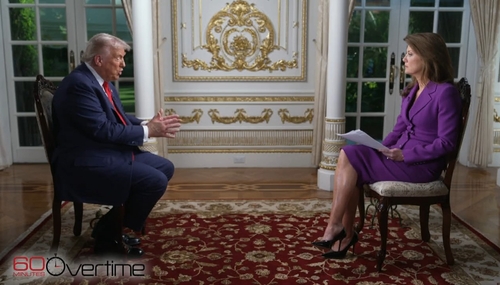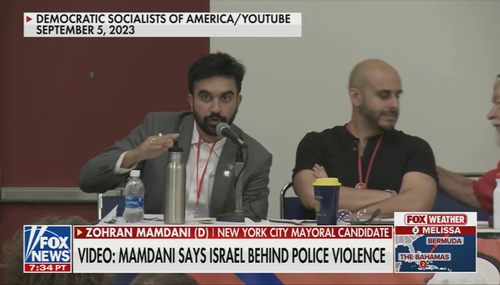Former CBS correspondent Sharyl Attkisson blasted the media's manipulation of news coverage in the first part of an interview that was posted on The Daily Signal, a new project of the conservative Heritage Foundation. Attkisson singled out a "tendency in the news media...on the part of some managers, to censor or block stories that don't fall in line with the message that they want sent to the viewers, and I think that's, really, a very dangerous perspective to have."
The journalist, who will work for The Daily Signal as a senior independent contributor, also gave a preview of her upcoming book, "Stonewalled: My Fight for Truth Against the Forces of Obstruction, Intimidation, and Harassment in Obama's Washington:"
SHARYL ATTKISSON: What I hope to do with 'Stonewalled,' is explain to the public how images that they see every day – not just on the news, but including in the news – but on social media; on television; on billboards – how these images are manipulated in covert and surreptitious ways by political forces and financially-backed forces that they have no idea about. If you can become savvy to this manipulates, and sometimes, outright propaganda, you can learn to recognize it and, sort of, filter through it – which, I think, helps people make up their own mind about what's really going on in the world.

The Washington Post's Paul Farhi covered the debut of The Daily Signal in an item which ran on the front page of Tuesday's Style section. Editor Rob Bluey (who previously worked for CNS News, a division of the MRC) hopes the website will deliver "fair, factual [and] trustworthy" journalism that will reach beyond Heritage's conservative donor base: "'We're probably not going to break through to the liberal left...We do think that by doing the news, and having that wall between news and opinion, there is an opportunity to reach beyond' the foundation's core audience."
The transcript of the Sharyl Attkisson interview from The Daily Signal:
SHARYL ATTKISSON: At my heart, I feel like I'm an investigative reporter, and that's what I can bring to the table and contribute. And, quite frankly, in the last couple of years, there just wasn't the appetite for that kind of reporting.
What I'm seeking out now – which is sort of in flux – is the opportunity to bring under-served stories to a broad audience; to an editorial process that doesn't censor; that doesn't try to direct a story to go in a certain, unnatural direction, but lets the story be told the way the story, naturally, is occurring. That's pretty much the – the direction I'd like to see my career go now.
KELSEY HARKNESS, NEWS PRODUCER, THE DAILY SIGNAL: Leading to your book 'Stonewalled,' which is due out this fall, can you tell us about its focus and what impact you hope it will have?
ATTKISSON: What I hope to do with 'Stonewalled,' is explain to the public how images that they see every day – not just on the news, but including in the news – but on social media; on television; on billboards – how these images are manipulated in covert and surreptitious ways by political forces and financially-backed forces that they have no idea about. If you can become savvy to this manipulates, and sometimes, outright propaganda, you can learn to recognize it and, sort of, filter through it – which, I think, helps people make up their own mind about what's really going on in the world.
There is a movement in Washington, D.C. to affect public opinion in ways other than direct lobbying. People know about campaign lobbying contributions given directly to members of Congress. Now, there's a whole industry set up around manipulating public opinion or swaying public opinion in other ways – through social media; maybe, setting up blind accounts or accounts through pseudonyms; through editing Wikipedia in certain ways; through posting on Twitter and Facebook. There all kinds of ways that people's opinions are being shaped through forces that they don't know are behind the shaping of those opinions, and I really think it's important that people know who's behind the efforts.
HARKNESS: So why did you decide at this juncture to also contribute to The Daily Signal?
ATTKISSON: In my effort to try to find a way to distribute important, interesting, and under-served stories to a diverse audience, in a way that the story can be free to tell itself – versus being directed in a certain direction one way or the other that may be unnatural – I'm looking for various outlets. And The Daily Signal promised to be a good outlet for an under-served story – in this case, the one about the baby oxygen trials – in a way that the story can naturally tell itself – and in a fearless way, because there are people who do want to shy away from these types of stories that they perceive as critical of government or powers that be. And I think those are some of the most important stories that need to be told today.
HARKNESS: And how would you describe the state of the news media today? What do you think reporters, editors, and producers can do to change it for the better?
ATTKISSON: I think one thing that's lacking, especially the last couple of years, is the desire on the parts of editors and managers to let stories be what they are and tell themselves, versus directing them to go in a certain direction. I mean, I feel like, more often than not in the last couple of years, many managers want to know where a story is going to end up before they decide to commit to it. That's really not how the journalism that I think should be done is committed. I think that you may find an interesting story, and then, you go discover the facts about it. You don't try to lead it in one direction or another.
I also think there's a tendency in the news media to – on the part of some managers, to censor or block stories that don't fall in line with the message that they want sent to the viewers, and I think that's, really, a very dangerous perspective to have. I don't think we should be in the business of concluding, in advance, what the viewers might think of a certain story; and therefore, it needs to go in a different direction – or, perhaps, not air at all.




